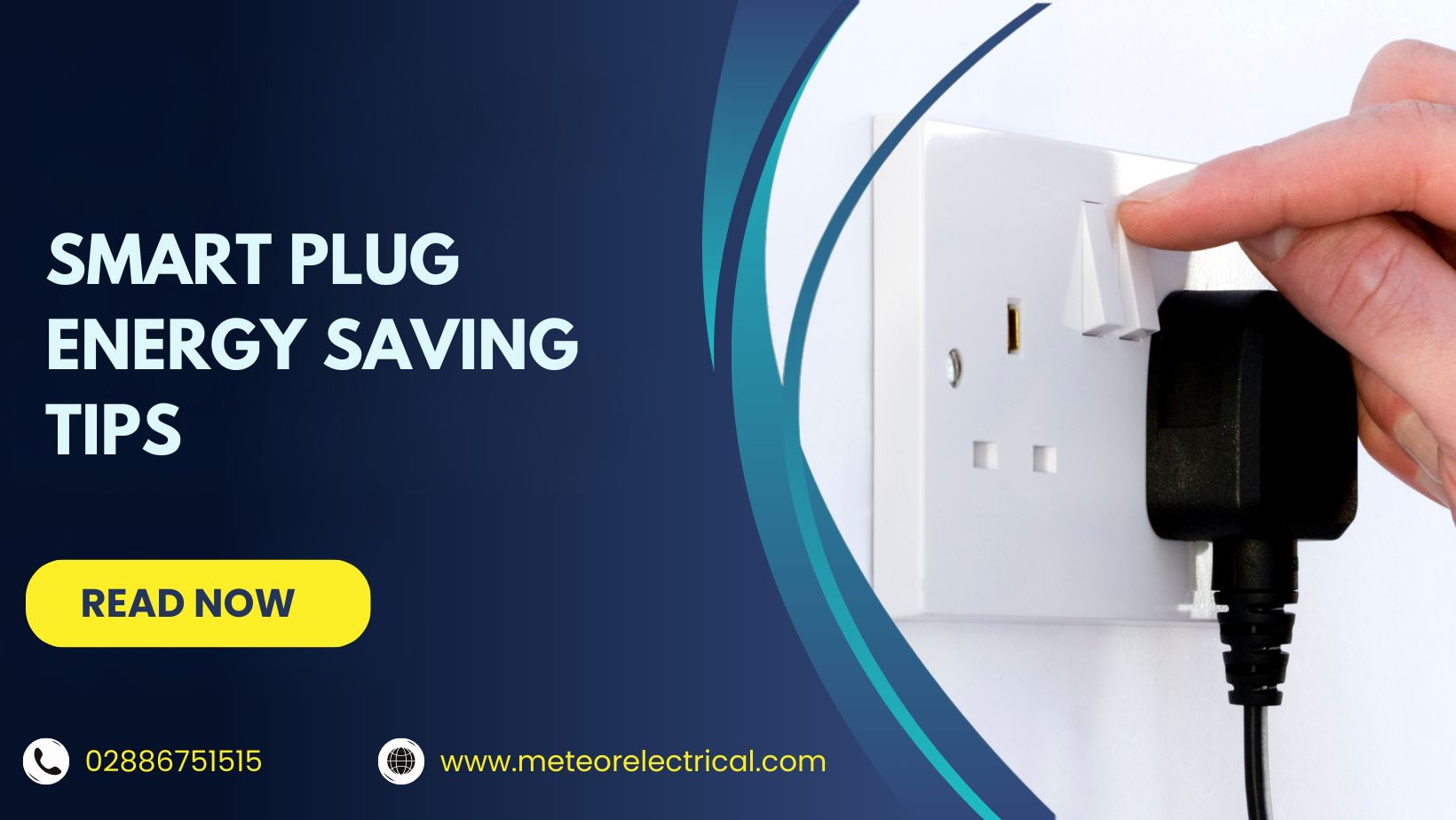Do Smart Plugs Really Save Energy? A Complete Guide to Smarter Energy Use
Do Smart Plugs Really Save Energy? A Complete Guide to Smarter Energy Use
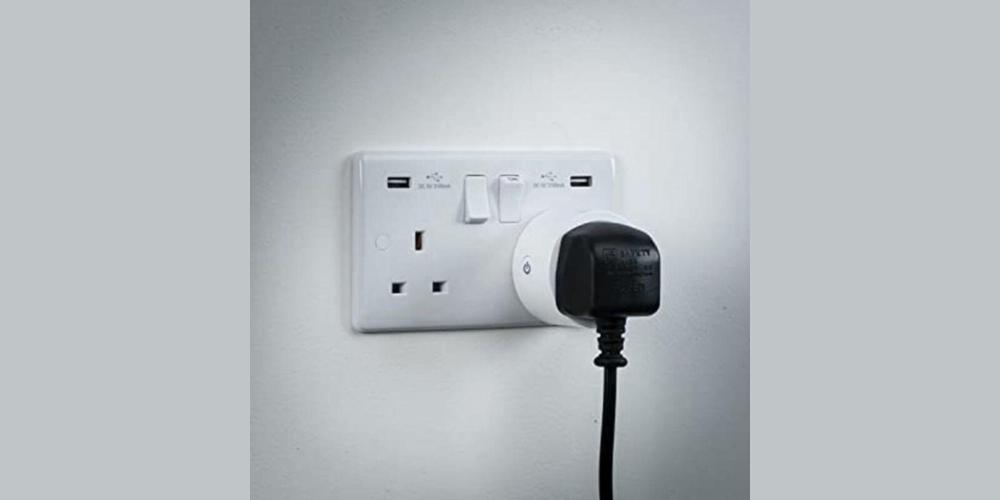
In today’s fast-paced world, smart home technology is no longer a luxury — it's a practical solution for saving energy, increasing convenience, and reducing waste. One of the simplest yet most effective tools in this space is the smart plug. But do smart plugs actually help cut down your energy usage, or are they just another tech gimmick?
In this guide, we’ll unpack everything you need to know: how smart plugs work, how they help manage power consumption, and what features to look for when choosing one. Whether you're building a smart home from scratch or just want to reduce phantom energy usage, this article from Meteor Electrical has you covered.
What Is a Smart Plug and How Does It Work?
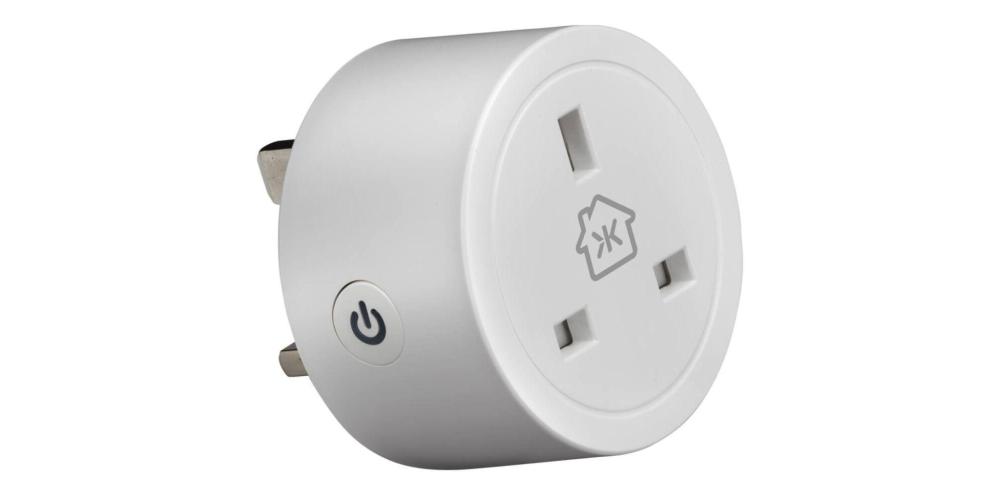
A smart plug is a compact device that fits into a standard power outlet and allows you to control the connected appliance remotely. Through a mobile app or virtual assistant like Alexa, Google Assistant, or Siri, you can switch appliances on and off, set timers, and even monitor power consumption in real-time.
According to The Ambient, smart plugs are one of the easiest entry points into home automation — no rewiring, no tech wizardry.
>
Credit: Make It Work
Core Components of Smart Plugs
- Wi-Fi Module: Enables communication with your home network
- Power Monitoring Chip: Tracks how much energy the connected appliance consumes
- Relay Switch: Physically controls power flow to the device
- App Interface: Lets you manage power settings and schedules from your phone
- Voice Assistant Compatibility: Allows hands-free control
This combination of features enables users to transform regular devices — such as fans, heaters, and lamps — into smart-controlled systems, boosting efficiency and safety.
Smart Plug Features That Help Save Energy
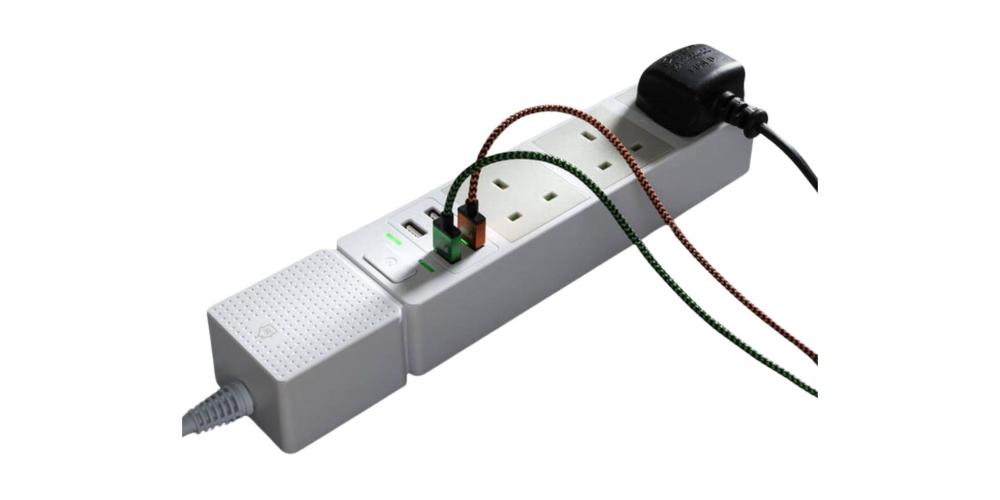
1. Energy Monitoring
Many smart plugs offer real-time monitoring so you can track how much energy a specific device is using. This helps identify high-consumption items like space heaters or gaming consoles and adjust usage accordingly.
2. Scheduling and Automation
You can schedule lights, fans, and appliances to turn off during work hours or overnight. Automation avoids leaving devices on unnecessarily and maximises efficiency.
3. Remote Access
Forget to turn off your heater before leaving the house? No problem. Use the app to shut it off from anywhere, cutting phantom energy usage — a common issue also known as vampire power drain.
According to Sensorfact, standby power from unused devices can account for up to 10% of your electricity bill.
4. Voice Control
With voice assistants, you can turn devices on or off with a simple command. This is particularly helpful when your hands are full, such as when cooking or doing chores.
Where Smart Plugs Save the Most Energy: Practical Use Cases
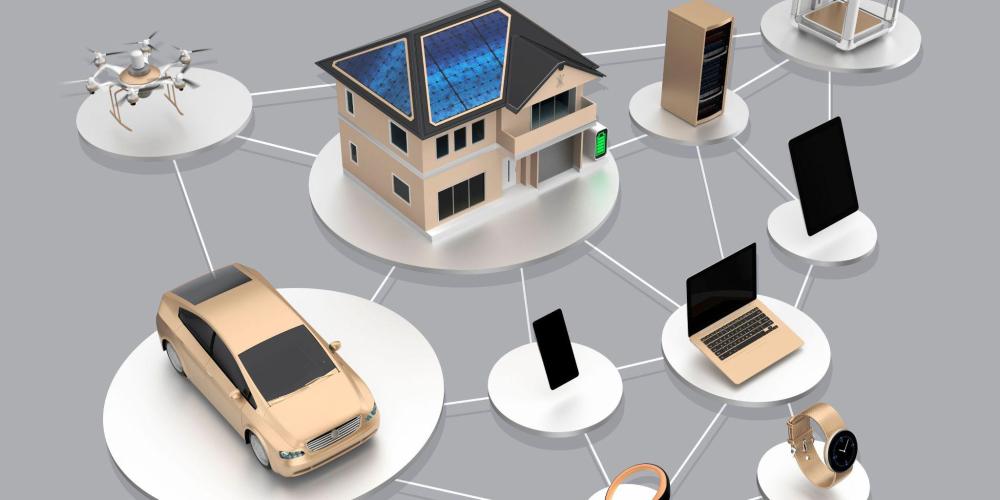
Gaming Consoles
Gaming devices like the PlayStation 5 or Xbox Series X draw significant power even in standby mode. A smart plug ensures these are completely powered down when not in use, eliminating unnecessary energy consumption.
Kitchen Appliances
Coffee machines, microwaves, and even toasters often have digital displays and standby features that use electricity around the clock. Smart plugs give you full control and allow automatic shutdown after use.
Lighting
Smart plugs are perfect for lamps, LED strip lights, or plug-in mood lighting that doesn’t come with built-in timers. You can also control decorative or seasonal lighting more efficiently with scheduled use.
Entertainment Systems
Group your TV, soundbar, gaming console, and streaming box on one smart plug. When the TV turns off, everything else does too — reducing phantom power usage and keeping things simple.
By automating control of multiple devices, you're not just improving convenience, you're also avoiding unnecessary consumption from forgetfulness or idle time.
Scheduling and Automation: Save Energy Without Thinking About It
Let’s say you typically leave the house at 8 AM. With scheduling, your best oil-filled radiator, coffee machine, and lights can turn off automatically, avoiding wasted energy when no one is home.
You can also set timers for:
- Extractor fans in bathrooms
- Outdoor security lighting
- Electric blankets and heated throws
- Rechargeable power stations or devices
This not only saves energy but extends the life of your appliances, reduces wear and tear, and ensures you're only using electricity when it's needed. It also provides a level of home automation and peace of mind — particularly useful for frequent travellers or busy households.
How Much Energy Do Smart Plugs Use?
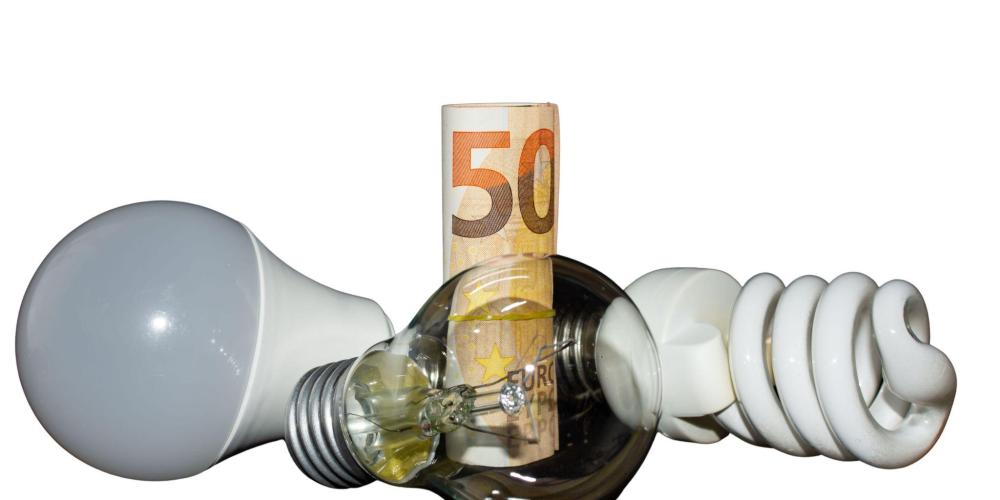
Smart plugs themselves consume a minimal amount of energy — typically around 1 to 2 watts in standby mode when connected to Wi-Fi. If you're using Zigbee or Z-Wave enabled plugs, this idle usage can drop to 0.3 to 0.6 watts, depending on the brand and specifications.
Although this may seem counterintuitive, the minimal power draw is easily offset by the savings smart plugs enable through scheduling, automation, and eliminating phantom loads. The return on energy savings is significantly higher over time.
How to Choose the Right Smart Plug for Energy Efficiency
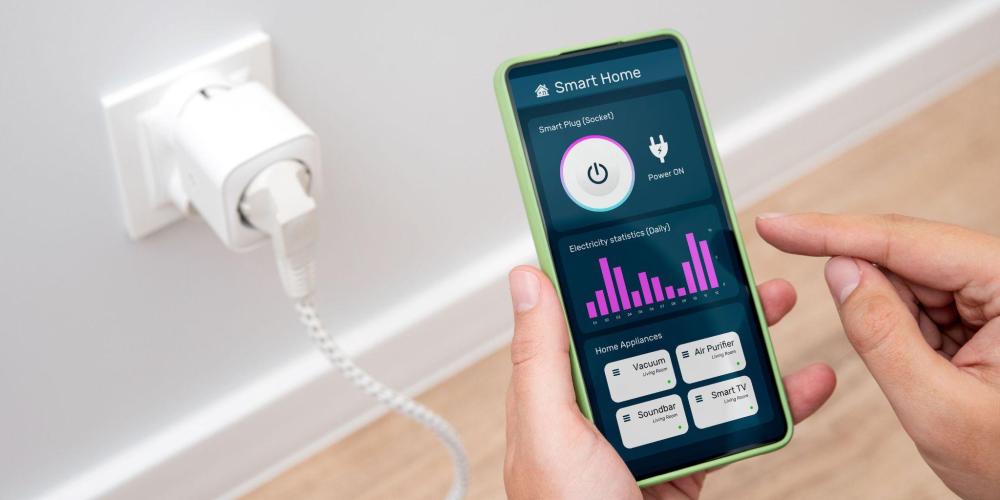
1. Voice Assistant Compatibility
Make sure your smart plug integrates with Alexa, Google Assistant, or Siri. Most modern plugs include this feature, allowing you to control appliances via voice commands.
2. Energy Monitoring Feature
Choose a smart plug with built-in usage tracking so you can monitor power consumption and make better decisions about which appliances to control or schedule.
3. Outdoor Use and Durability
If you're planning to use the plug outdoors, make sure it has an IP-rated weatherproof housing. This ensures safety in damp or rainy conditions. Review our IP Rating Chart to choose the right level of protection.
4. Load Capacity
Different plugs are built for different devices. Check the amp rating and wattage limits to ensure compatibility with your appliance — especially if you’re controlling heaters or high-power kitchen equipment.
5. Smart Design
Compact and dual-socket models allow more flexibility, especially around tight wall outlets. Some plugs even include USB ports for charging devices, providing more functionality in the same footprint.
Credit: Simon Says Home Assistant
Why Smart Plugs Are Worth the Investment
Smart plugs typically cost between £10 and £30, depending on features like scheduling, energy monitoring, and app integration. Despite this modest investment, they provide a wide range of long-term benefits:
- Lower energy bills through efficient automation
- Safer homes with remote shutdown and RCD compatibility
- Longer appliance life due to reduced idle usage
- More control and convenience in daily routines
- Improved sustainability through mindful energy use
They also offer an easy way to dip your toes into smart home automation without expensive upgrades or rewiring. With a few smart plugs and a compatible app, you can start managing your home smarter — and greener — today.
Conclusion: Are Smart Plugs the Future of Energy-Efficient Living?
Absolutely. Smart plugs are a simple, affordable, and highly effective way to improve how we use electricity at home. Whether you're trying to save money, live more sustainably, or just enjoy greater control over your devices, smart plugs deliver real, measurable benefits.
At Meteor Electrical, we stock a wide selection of high-quality smart plugs, smart sockets, and automation accessories to suit any home. From indoor scheduling to weatherproof outdoor smart plugs, we help you choose the right solution for your needs.
Want to build a smarter home, save energy, and take control of your power usage?
Explore our smart home collection at Meteor Electrical and start your journey toward energy-efficient living today.
Frequently Asked Questions
1. Do smart plugs save energy?
Yes, smart plugs save energy by eliminating standby power consumption and allowing you to set schedules for devices, ensuring they are only on when needed.
2. Do smart plugs use energy when powered off?
Smart plugs use minimal energy, typically around 1 watt, even when in standby mode. This is significantly less than the energy saved by reducing phantom loads.
3. Are smart plugs worth it?
Yes, smart plugs are worth it. They offer convenience, energy savings, and enhanced control over household devices, making your home more efficient.
4. Are smart plugs energy efficient?
Smart plugs are energy efficient because they consume very little power themselves and help you monitor and reduce the energy usage of connected devices.
5. Can smart plugs be used outdoors?
Yes, some smart plugs are designed for outdoor use. Ensure they have a suitable IP rating for weather resistance before using them outside.
6. How do smart plugs integrate with virtual assistants?
Smart plugs integrate with virtual assistants like Alexa, Google Assistant, and Siri, allowing you to control your devices using voice commands for added convenience.

